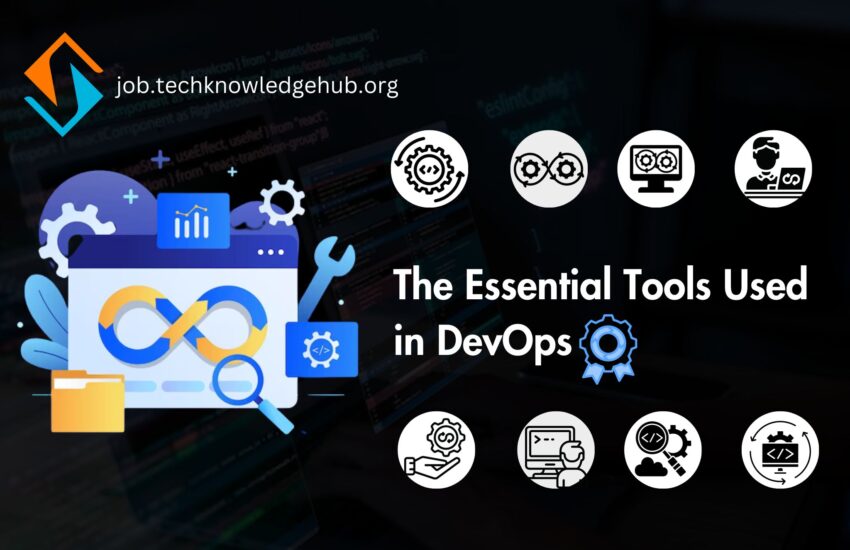Introduction
DevOps is a fast-growing field in the technology industry, revolutionizing the way software development and operations teams collaborate and deliver high-quality products. To achieve successful DevOps practices, several tools are used to streamline processes and enable efficient workflows. In this blog post, we will explore some of the essential tools used in DevOps and their importance in driving continuous integration, deployment, and delivery.
1. Version Control System (VCS)
A version control system is a fundamental tool in DevOps that helps track changes made to source code, ensuring team collaboration and eliminating errors caused by conflicting changes. Git, a widely used VCS, enables developers to work simultaneously on a project, merge changes, and revert to previous versions if necessary. With Git, teams can easily manage code repositories, track changes, and collaborate seamlessly, leading to faster development cycles and better code quality.
Another popular VCS is SVN (Subversion), which offers centralized version control. It provides a structured repository that allows teams to work together and easily manage codebases. Whether using Git or SVN, a version control system is essential for maintaining code integrity and enabling collaboration in DevOps environments.
2. Continuous Integration and Delivery (CI/CD) Tools
CI/CD tools play a vital role in automating the build, test, and deployment processes, ensuring software is continuously integrated and delivered to production. Jenkins, a widely used open-source CI/CD tool, allows teams to automate the building, testing, and packaging of applications. It supports various plugins, enabling integration with other tools and platforms, making it highly flexible and customizable.
Another popular CI/CD tool is CircleCI, a cloud-native platform that enables teams to automate their workflows and achieve faster development cycles. CircleCI provides a simple and intuitive interface, allowing developers to define their build and deployment pipelines easily. With features like parallelism and caching, CircleCI optimizes the testing and deployment process, improving overall productivity.
3. Configuration Management Tools
Configuration management tools help automate the provisioning and management of infrastructure, ensuring consistency and scalability. Ansible, a powerful open-source tool, allows teams to define infrastructure as code, making it easily reproducible and scalable. With Ansible, developers can automate the deployment of applications, configuration of servers, and management of network devices, reducing manual effort and minimizing errors.
Chef, another popular configuration management tool, follows a similar approach but focuses on providing a framework for infrastructure automation. It enables teams to define infrastructure as code and offers a powerful set of resources and cookbooks to manage configuration. Chef ensures that infrastructure is consistent across environments, keeping deployments reliable and predictable.
Conclusion
DevOps initiatives heavily rely on tools to drive collaboration, automate processes, and improve overall efficiency. Version control systems, CI/CD tools, and configuration management tools are just a few examples of the essential tools used in DevOps. By leveraging these tools, businesses can accelerate their software development lifecycle, reduce errors, and deliver high-quality products faster. Embracing DevOps and its associated tools can give organizations a competitive edge in today’s rapidly evolving technology landscape.

